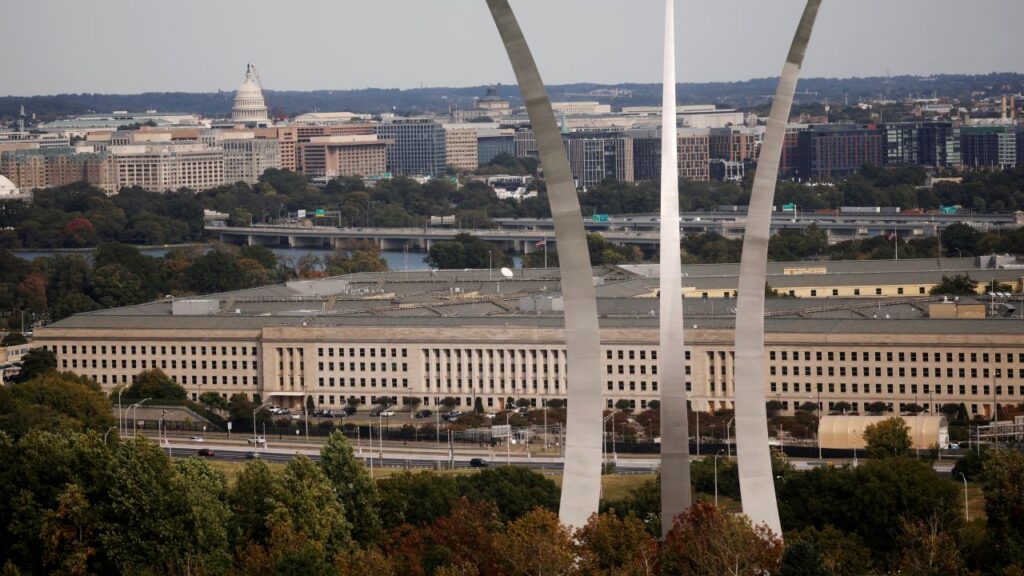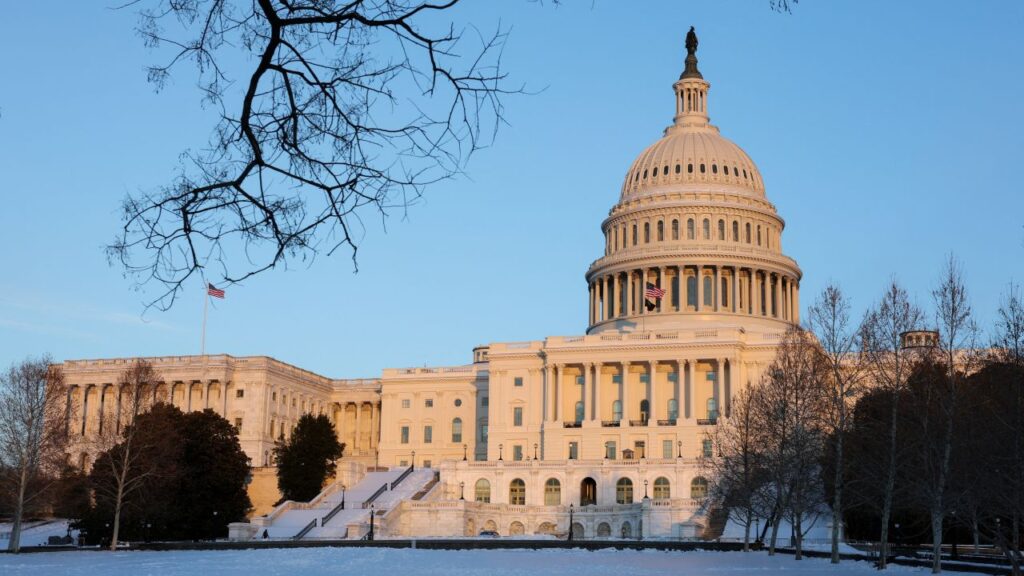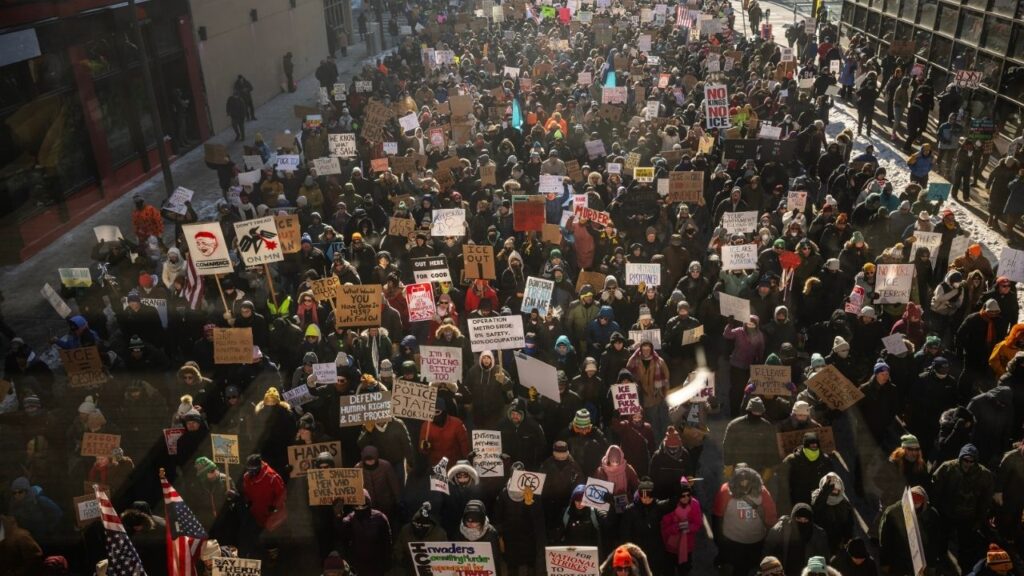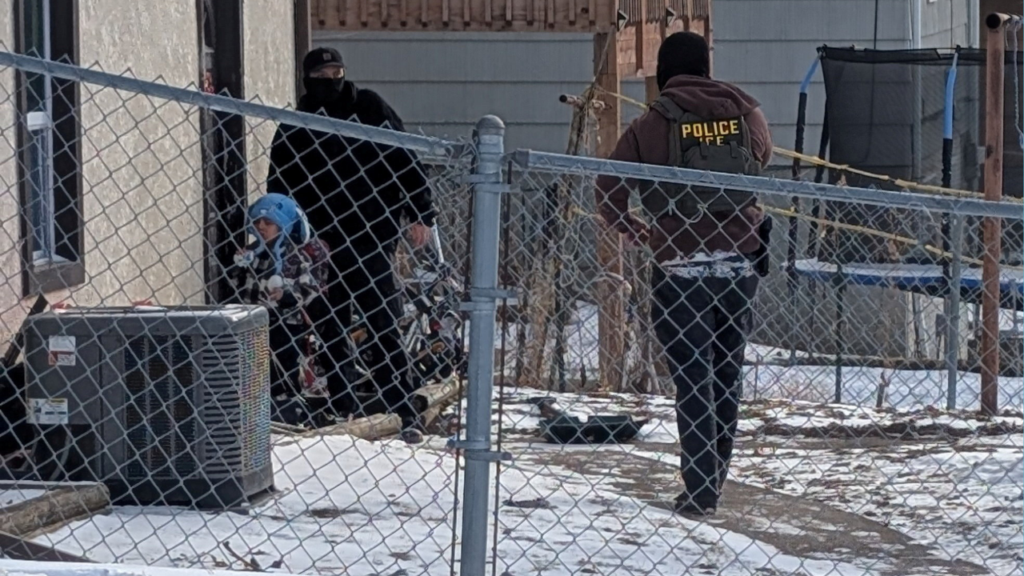Work to raise the B.F. Sisk Dam another 10 feet will take place following a project to protect the nation's largest off-stream reservoir against earthquakes. (GV Wire Composite/Paul Marshall)

- An agreement between U.S. Bureau of Reclamation and the San Luis & Delta Mendota Water Authority paves the way for an effort to increase San Luis Reservoir's capacity.
- The 10-foot raise, adding 130,000 acre feet of water to the reservoir, follows after another project to reinforce the dam against earthquakes.
- The two projects together will cost more than $2 billion.
Share
|
Getting your Trinity Audio player ready...
|
The U.S. Bureau of Reclamation Wednesday announced an agreement with the San Luis & Delta-Mendota Water Authority to raise the nation’s largest off-stream reservoir, increasing its capacity more than 6%.
A news release from the water authority said the additional 130,000-acre-foot capacity at the San Luis Reservoir will provide water for 2 million people, 1 million acres of farmland, and 135,000 acres of wetlands.
“The ability to capture more water in the years it is available, particularly given California’s dynamic hydrology, is a critical component of a more secure future for the communities, farms, and wildlife dependent on the Authority’s member agencies for their water supply,” said San Luis & Delta-Mendota Water Authority Board Chair Cannon Michael.
The reservoir west of Los Banos along Highway 152 has a capacity of 2,027,840 acre-feet. Of that total, 1,062,180 acre-feet is the state’s share and 965,660 acre-feet is the federal share for the Central Valley Project. Construction on the reservoir began in 1963 and was completed in 1967.
Two Projects, $2 Billion Investment for B.F. Sisk Dam
The capacity expansion at the B.F. Sisk Dam comes as the federal government sought to fortify the dam against earthquakes.
A previous agreement under President Joe Biden’s Bipartisan Infrastructure Law provided $100 million to raise the dam 10 feet to improve seismic fortification. Ultimately, the federal government will fund 85% of the $1 billion project, with the remaining 15% coming from local sources, said Scott Petersen, water policy director for the water authority.
Petersen likened that project to adding a lip to the dam to keep water from sloshing in the event of an earthquake.
Once that project is completed — estimated to be finished by 2027 — construction can begin to raise the dam another 10 feet, allowing for the additional storage, Petersen said.
Petersen said construction will likely last until 2032.
Six Irrigation Districts Will Help With Funding
Thirty percent of that increase will be for federal uses, such as fulfilling water contracts. The other 70% will be for the dam’s investors, made up of six irrigation districts — including Westlands Water District — the city of Tracy, and the Santa Clara Valley Water District.
“Reaching this moment is a testament to the strong commitment to addressing the critical issue of water security in the state,” said Westlands Water District General Manager Allison Febbo.
The government will pay for 30% of that $1.1 billion project, with $95 million raised so far.
Additional capacity will provide dam investors with flexibility during times of plenty, Petersen said. The farmers and cities that pay into the project can store water there long term.
The water would be directed to wetlands and those farms considered south-of-Delta. The water would not be used for new contracts, but to fulfill existing ones, the release stated.
“The addition of new water storage capacity south-of-Delta in San Luis Reservoir is a crucial part of our strategy for enhancing water reliability for California communities, agriculture, and wildlife,” said Bureau of Reclamation Regional Director Karl Stock.



















